Gas leaks are a very common problem at most residential homes and businesses. Gas leaks can occur for a variety of reasons, and can be dangerous or even life-threatening. It's essential to know the symptoms and take steps to address the issue. In this blog post, Oak Plumbing will discuss the symptoms of a gas leak so that you can know what to do in case one occurs.
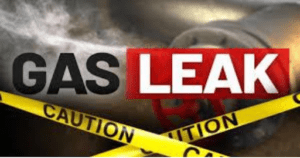
Gas safety tips: Learn the signs of a gas leak in your home
The smell is the first step
One of the most common symptoms of a gas leak is the smell of rotten eggs. If you smell this coming from any area in your home, it's essential to take action immediately.
Hissing sounds
Another symptom of a gas leak is a hissing or whistling sound. This sound usually comes from a leaking gas pipe or fitting. If you hear it coming from your home, it's vital to take action right away.
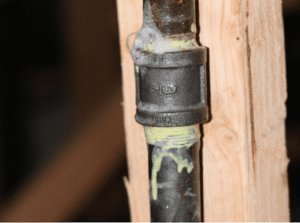
Air bubbles outside the home
If you see air bubbles coming from the ground or any other surface in your home, it's a sign that there may be a gas leak. Take action immediately if you see this.
Dead or dying plants
If you have plants near where you think the gas leak may be, they can be a good indicator of whether or not there's a problem. Dead or dying plants are a sign that there may be a gas leak.

Increased gas usage
In the case of you noticing an increase on your gas bills, this could be a sign of a leak. While there could be other explanations for this, it's always best to err on the side of caution and have a professional take a look.
Corrosion or rust near/on the gas line & fittings
If you see a build-up of corrosion and or rust near your gas line, it could be an indication that there's a leak. This effect is because the gas is escaping from the pipe and coming into contact with the air and water.
Physical symptoms of gas leak poisoning
- Breathing difficulties
- Dizziness
- Fatigue or drowsiness
- Feeling lightheaded
- Flu-like symptoms
- Headaches
- Irritation to the eyes and throat
- Mood changes, including depression
- Nausea
- Nosebleeds
- Pains in the chest
- Pale skin or blistering following direct contact with the gas
- Reduced appetite
- Ringing in the ears
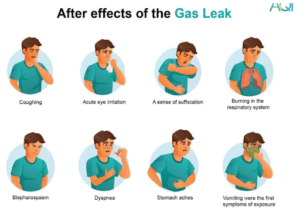
Inspect machines and appliances that use gas
If you have any machines or appliances that use gas, it's essential to inspect them regularly. This inspection includes checking for leaks, as well as making sure the ventilation is working correctly.
Keep animals and children away from sources of gas
If you have any animals or children in your home, it's essential to keep them away from sources of gas. These sources include water heaters, stoves, ovens, etc. This rule should be exercised regardless of whether there is a leak or not.
Install natural gas and carbon monoxide detectors
Another way to help keep your family safe is to install natural gas and carbon monoxide detectors. These can help alert you to a problem before it becomes dangerous.
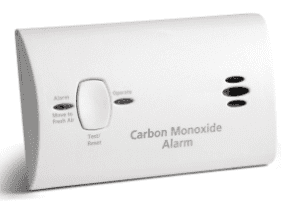
Know how to turn off your home's gas
In the event of a gas leak, it's essential to know how to turn off your home's gas. Most properties have a gas meter that allows you to turn your gas on or off from the gas shut-off valve. This precaution can help prevent further damage and keep you safe.
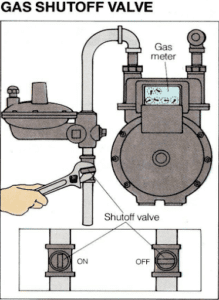
What to do if you have a gas leak in your home
If you think you may have a gas leak in your home, it's vital to take action immediately. You should:
Evacuate your home immediately
Every person in the home should flee immediately and gather at a predetermined safe place. This measure lowers your risk of exposure to the gas and separates you from the property in the event that the leak ignites.
Leave windows and doors open
On your way out of the house, open all doors and windows. This tactic allows natural gas to escape via the openings.
Call for help
Call for assistance as soon as everyone is outdoors and at a safe distance from the house.
What not to do if you have a gas leak in your home
Do not search for the source of the leak
Do not attempt to find the source of the leak. This action could be dangerous and may result in an explosion.
Do not try to repair the leak
Do not attempt to repair the leak. This repair should be done by a qualified professional.
Do not use electronics inside the house
Do not use anything that can create a spark inside the house, such as cell phones, light switches, or appliances. These could ignite the gas and cause an explosion.
Do not stay inside the house
Get out of the house immediately and go to a safe location.
Don't close windows and doors
This action will cause the gas to accumulate inside your home.
Don't keep quiet about the emergency
Call your gas company and 911 as soon as you can. Be sure to tell them about the symptoms you're experiencing.
Don't use open flames
Do not use electronics, cell phones, matches, or anything that could create a spark inside your home—this could ignite the gas and cause an explosion. Be sure to keep all potential sources of ignition away from the area.
How gas lines are damaged
There are many ways that gas lines can become damaged. The most common causes of damage are construction work, landscaping, vehicle accidents, and climate-based corrosion. If you suspect that a gas line has been damaged, it's essential to call your gas company immediately so they can send someone out to assess the situation and make any necessary repairs.
Construction, landscaping, and digging
If you're planning any construction work, landscaping, or other diggings near your home, it's essential to call your gas company beforehand so they can mark the location of any underground gas lines. This care will help prevent damage to the lines and avoid any potential hazards such as gas leaks.
Wear and tear
Over time, gas lines can become damaged due to wear and tear. If you think your gas line may be leaking, contact your gas company right away.
Weakened joint seals
The thread sealant that joins gas lines together can weaken over time, causing leaks. If you think your gas line may be leaking, contact your gas company right away.
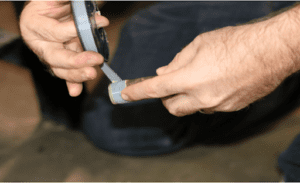
Have a gas line? Call Oak Plumbing today!
We founded Oak Plumbing on a customer service mentality, dedication to the community, and a desire to bring professional plumbing back to the market. When it comes to servicing your property, the Oak Plumbing staff applies cutting-edge plumbing technology while preserving our family values. At Oak Plumbing, the safety of your family is our top priority. All our technicians are certified and background-checked, so you can rest assured knowing that only qualified plumbing experts will be in your home. We're also proud to boast a high percentage of five-star reviews from happy customers. So don't wait until it's too late - contact us today!


